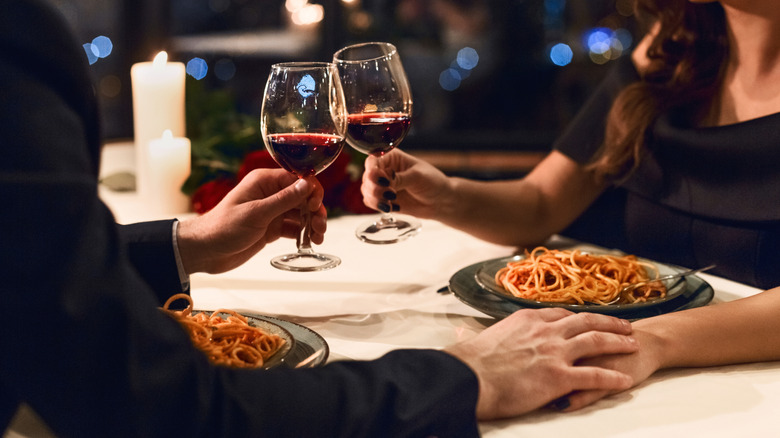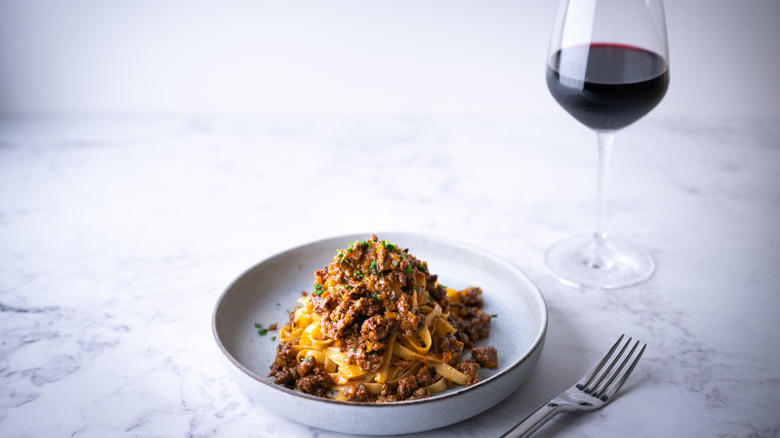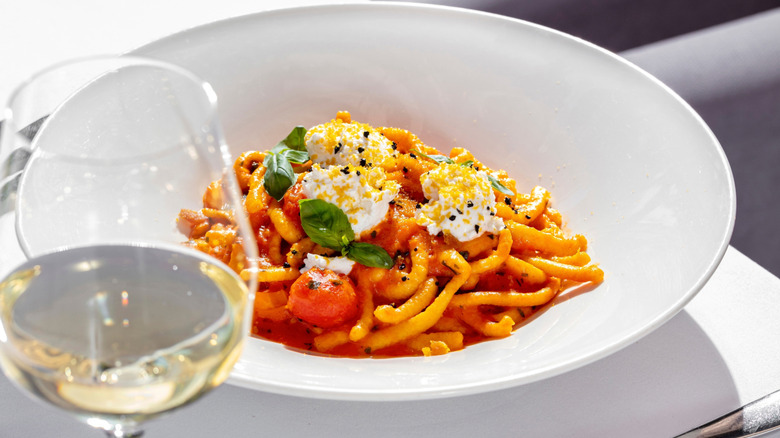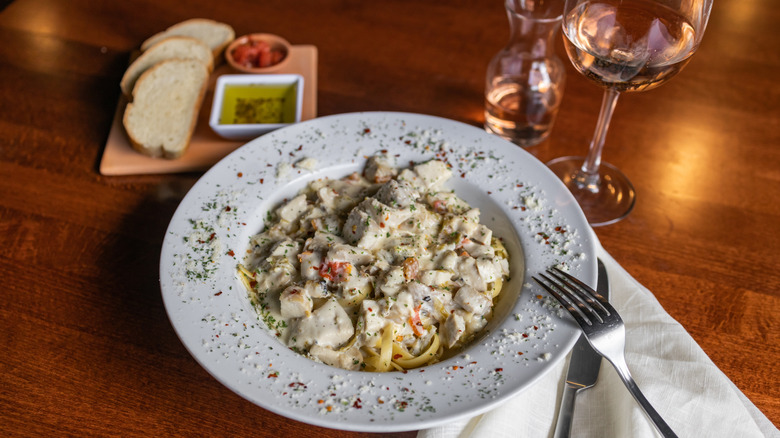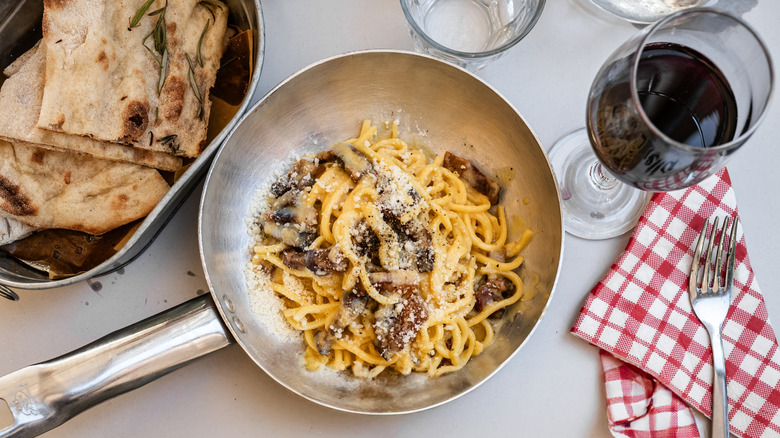Rules To Remember When Pairing Wine With Pasta
Wine and pasta — is there anything better? Whether you're out for a romantic night on the town, cooking up a cozy comfort meal with your favorite movie on TV, or entertaining friends with a classy dinner party, few situations are left unimproved by this Dyonisian combination. There's no way to truly go wrong with a wine and pasta dinner, but for those looking to pair their dishes like a professional, Food Republic spoke to Joshua Frias, executive chef at Naples Ristorante e Bar of Downtown Disney in Anaheim, California, to get his go-to rules.
Unfortunately — or fortunately if you like the adventure — there's no one-size-fits-all rule like "white sauce, white wine; red sauce, red wine." The idea that the best wine pairings are exclusively built around color is one of many common myths about wine. The key is to be conscientious of what the meal is trying to put forward in terms of flavor profile. "When considering a wine to pair with a pasta sauce, you need to consider what the main characteristics of the pasta sauces are," chef Frias said.
Enjoy ragù and Chianti
A rich, loaded dish like a ragù is loaded with tender, salty red meat such as chuck roast; sweet, umami-packed tomatoes; and wide, springy noodles like pappardelle. For such a dish, Chef Joshua Frias recommended a wine that can handle the intense flavors while mitigating some of the richness, so you don't leave the table with overwhelmed tastebuds.
"... if you have a thick rich meat ragu, with its heavy deep flavors, acidic sweetness from the tomatoes, and overall richness for long slow cooking, something like a Chianti could really [complement] the sweetness of the tomatoes with its own sweet hint of plum and red fruit while cutting the richness of the ragu with its relatively high acidity," he instructed. The similar flavor profile of each work hand-in-hand to bring out the best in the wine and sauce.
Rich and creamy vodka sauce loves a buttery chardonay
When it comes to the rich, creamy, spicy joy of a vodka sauce, Joshua Frias explained that a Chianti is a perfectly acceptable choice, but he prefers something a little more outside the box. "A medium to full-bodied oaked chardonnay, with its buttery notes to complement the creaminess of the vodka sauce could be a very nice and possibly unexpected pairing."
Remember that the body attributed to a wine is based on how it feels, rather than tastes. A full-bodied wine will be more viscous and heavy in the mouth than a lighter-bodied wine. Even something seen as on the drier side, like a chardonnay, can have that rich mouthfeel that works beautifully with a vodka sauce.
Alfredo or oil-based sauce pair with dry whites
As for pasta dishes that are not tomato-based, but instead feature a robust olive oil, Joshua Frias had both a red and a white pairing suggestion. "Alfredo, butter, and olive oil-based sauces pair nicely with fruity dry whites such as pinot grigio or Italian Orvieto [Classico]." Both are fruity and bright, which blend well with the olive oil, cutting through the richness and adding a subtle sweetness to the meal that balances out the pasta well.
For those who prefer reds, he had other advice: "Acidic light reds such as Beaujolais could also be an option, with a nice bite of acidity to cut through the richness of the cream or butter, and a fruitiness to add balance." Though it is high-acidity, it is low tannins, so it won't overpower the delicate taste of olive oil.
Other creamy sauces want full-bodied wines
As for the general category of creamy sauces, chef Joshua Frias believes there's a variety of choices. Whether you're eating carbonara — either the American or the Italian version – vodka sauce, or Alfredo, you just want to make sure you hit certain profile notes. Chardonnays that are bold and oaky help balance the flavor of creamy sauces, he explained, while also cutting through the richness. "A full-bodied red wine with robust flavors, such as pinot noir or merlot, could also pair nicely with the richness of these cream sauces," he said.
But ultimately, the most important thing to remember is that it's up to you to find your preference. If there's one thing he wanted to leave you with, it's this: "At the end of the day, whatever wine you prefer with your pasta is the right wine for the job, and these are just general guidelines to get you started on your journey of wine pairing."

